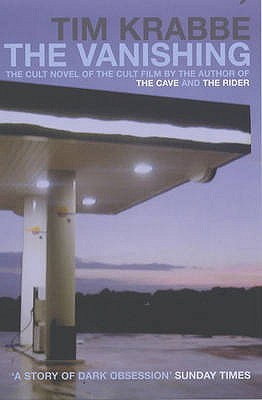Not many books can claim to have been filmed on more than one occasion although as Hollywood becomes more of a recycling plant than a hotbed of imagination that will soon go out the window. Published in 1984 as Het Gouden Ei (The Golden Egg), Tim Krabbé’s short psychological thriller was filmed in 1988 as the brilliant Spoorloos, which suffered that greatest indignity of cinema in 1991: the American remake.
Rex and Saskia are in love. Very much so. And one day, while driving through Europe, they stop at a petrol station in France. Saskia, offering to drive the next leg of their journey to Nuits-St-George heads into the shop to get Rex a beer. She doesn’t come back. Just vanishes.
Eight years later and Rex is in love with Lieneke, is pondering making her his bride, but he can’t let go of Saskia. If she was to come to him now he would go with Lieneke. But it’s the not knowing that continues to haunt him. Then, one day, a man arrives and offers Rex the chance to find out what happened to his former love.
Having seen both movie adaptations I was already aware how this novella was going to conclude (although the US remake had a different ending; or, more specific, had an extra ten/fifteen minutes tacked on; the same director though) but, given my love for the idea, that wasn’t going to stop me. The idea itself (girl gets kidnapped, lover mourns) isn’t all that original; it’s the clinical calculation of the kidnapper, a man called Raymond Lemorne, that makes it worthwhile. His journey to test himself as an angel of death (in opposition to his capacity as hero years before in a river rescue) is what makes the book. The decisions he makes, the planning, the revelations, the planting of alibis, etc. all combine to make him the real star of the book.
The language, however, is crap. It’s good and punchy in that thriller way, but the translation isn’t all that good: it’s full of incorrect words (Rex calls Saskia his wife despite their lack of marriage) and is littered with exclamation marks. In the narrative! According to Wikipedia the book was translated in 1993 (Random House) and again in 2003 (Bloomsbury). If the translation of the Bloomsbury is anything to go by, the 1993 edition is either really shoddy or definitive.
The characters suffer from that bane of most thrillers: lack of development. In The Vanishing plot is king. For a 115 page novella more could have been made of Rex’s grief, the mysterious Lemorne, and the triangle between Rex, Lieneke, and the missing Saski to merit this being an interesting novel.
Overall, though, I’m letting my love of the story cloud my judgement. It’s a great story with a horrific denouement. I would recommend the original Dutch movie, Spoorloos, though, over the actual book.
